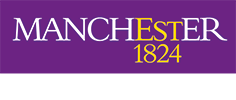THE UNIVERSITY OF MANCHESTER
Supporting the Sustainable Development Goals
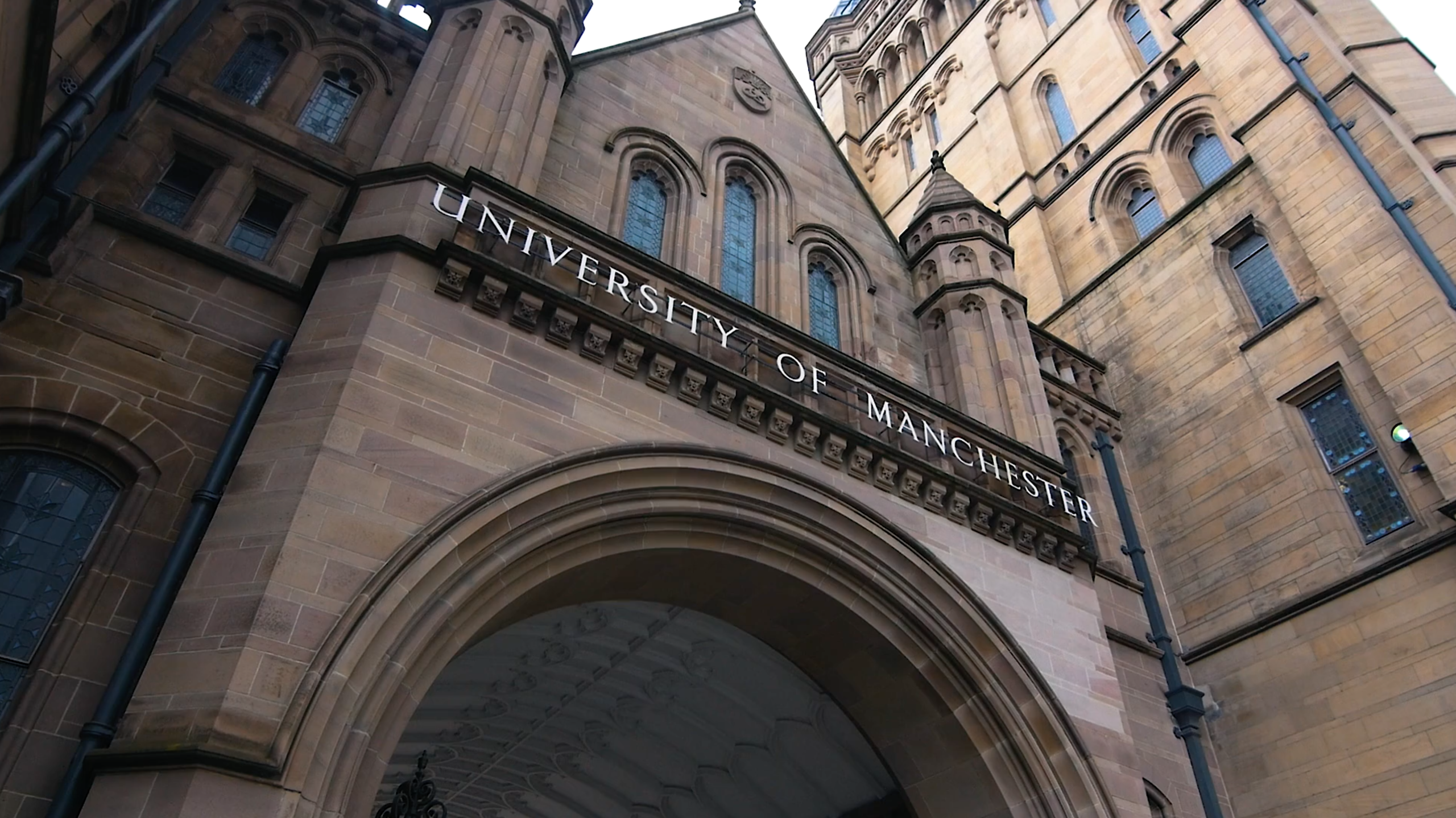
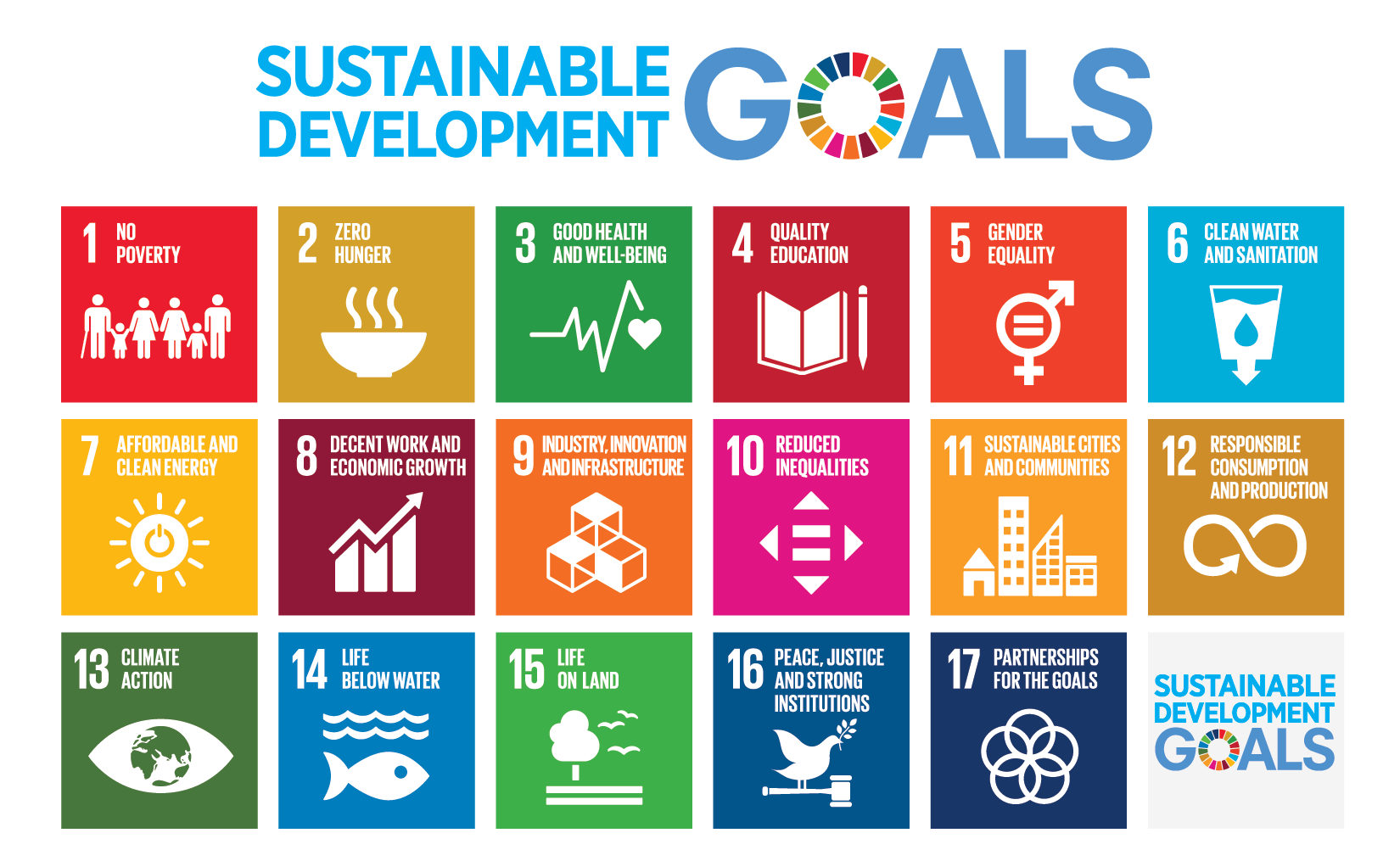
Introduction
The United Nations’ 17 Sustainable Development Goals (SDGs) are our world’s call to action on the most pressing challenges and opportunities facing humanity and the natural world. With their unique role in creating and sharing knowledge, universities have a direct role in addressing the challenges set out in Transforming our world: the 2030 Agenda for Sustainable Development.
As one of the world’s leading research institutions and the UK’s only university to have social responsibility as a core goal, The University of Manchester is playing a leading role in tackling the SDGs in four ways: research impact, learning and students, public engagement activity and responsible campus processes.
The quality and scale of our impact against the SDGs has been ranked first in the world in the 2021 Times Higher Education University Impact Rankings. We’ve also championed sustainable development through higher education as a key signatory to the international SDG Accord which commits ourselves to transparent reporting and goal-setting through publications like this.
This is a short version of a much wider report on the SDGs. It is aimed at a wide range of local, national and international audiences across the public, private, NGO, policy and education sectors. We hope it stimulates further ideas, actions and collaboration opportunities and partnerships so that, together, we can play a full role in tackling the world’s SDGs by 2030.
Dr Julian Skyrme
Director of Social Responsibility
The University of Manchester
Goal 1: No poverty
End poverty in all its forms everywhere
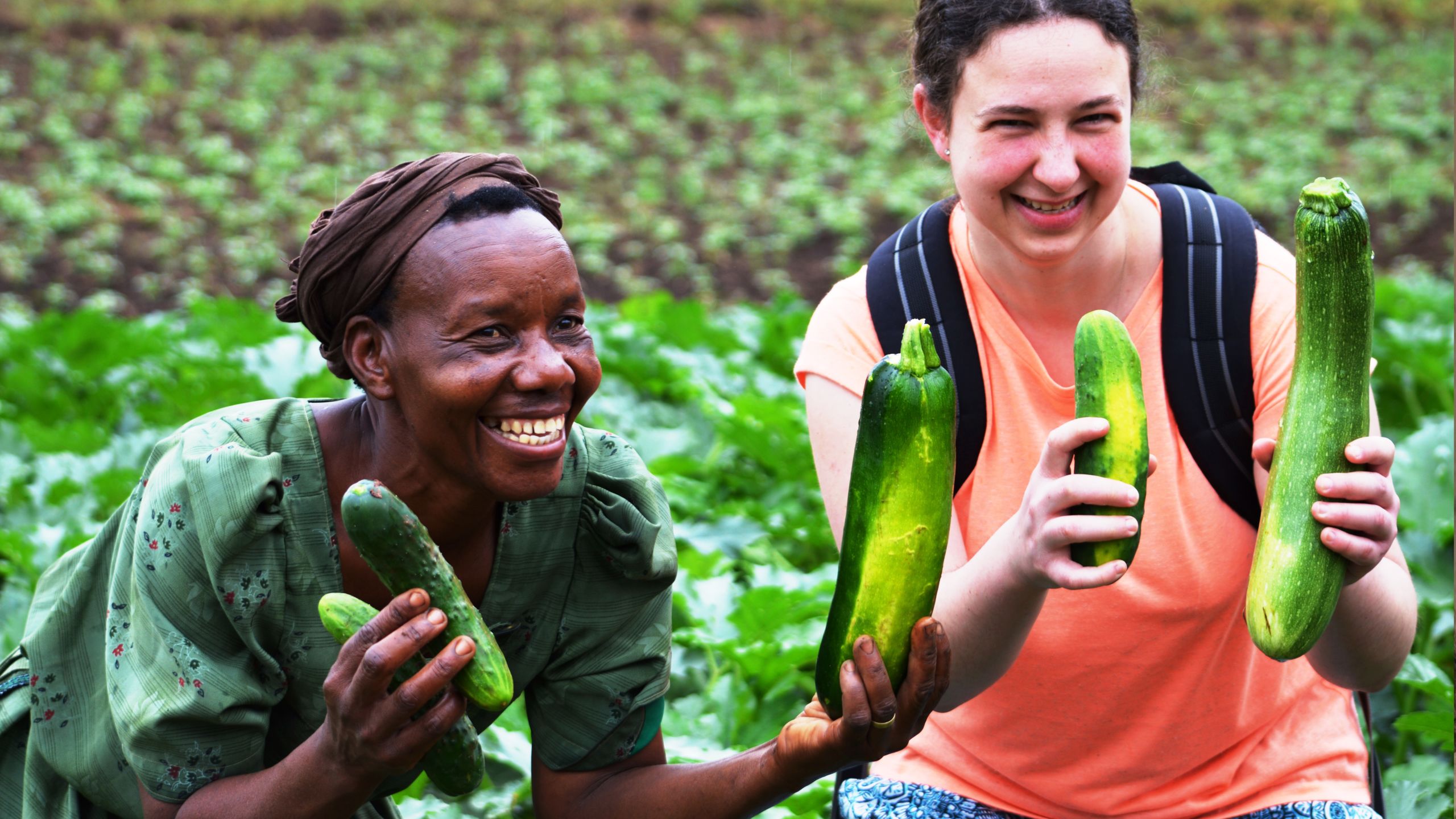
Global Development Institute
Our Global Development Institute (GDI) is Europe’s largest research and teaching institute focused on poverty and inequality. GDI runs the Effective States and Inclusive Development (ESID) Research Centre, which investigates how politics promotes inclusive development and government accountability. Recent research suggests that countries with the highest government capacity can reduce income poverty at twice the speed of countries with the weakest capacity. Spanning 16 countries, our research is deepening the understanding of governance in developing countries, and helping to influence policy and practices and improve people’s lives.
The Works
The Works aims to transform life chances in our local community by supporting unemployed people back into work. This is achieved through our employer-led one-stop-shop in a local community with free-to-use computers for job searches or writing applications, support for interview preparation and guidance by staff along the way. The initiative is led and organised by The University of Manchester in partnership with the Manchester Growth Company. Since 2011, more than 4,000 people have been supported into employment by this partnership.
To read more about our impact in this goal you can download our report.
Goal 2: Zero hunger
End hunger, achieve food security and improved nutrition and promote sustainable agriculture

Food insecurity in the UK
Working with Manchester City Council, Cracking Good Food, Save the Children, Oxfam and other charities, our Cathie Marsh Institute for Social Research and Institute for Collaborative Research on Ageing conducted pioneering research to document food insecurity in the UK following the economic recession.
We studied homelessness, street begging, food-bank use and financial difficulties faced by older women, and developed a pilot tool for helping older people with their nutrition. Our research influenced the political debate on food insecurity and raised awareness of the issue in the media.
Sustainable agriculture through electronic engineering
The environmental impacts of intensive agriculture and a growing global population are increasing the need for more effective processes. Researchers in our Department of Electrical and Electronic Engineering are examining how electronic engineering might improve food supply and sustainable energy production, without increased pressures on our land. E-Agri Manchester aims to use e-devices for precision agriculture, reducing waste, increasing yields and making crops more resilient.
This might involve using sensors that detect weeds, nutrient deficiency or low soil moisture. In support of this, we work across various projects including the N8 AgriFood programme, a research initiative of the eight most research-intensive universities in the north of England.
To read more about our impact in this goal you can download our report.
Goal 3: Good health and well-being
Ensure healthy lives and promote
well-being for all at all ages
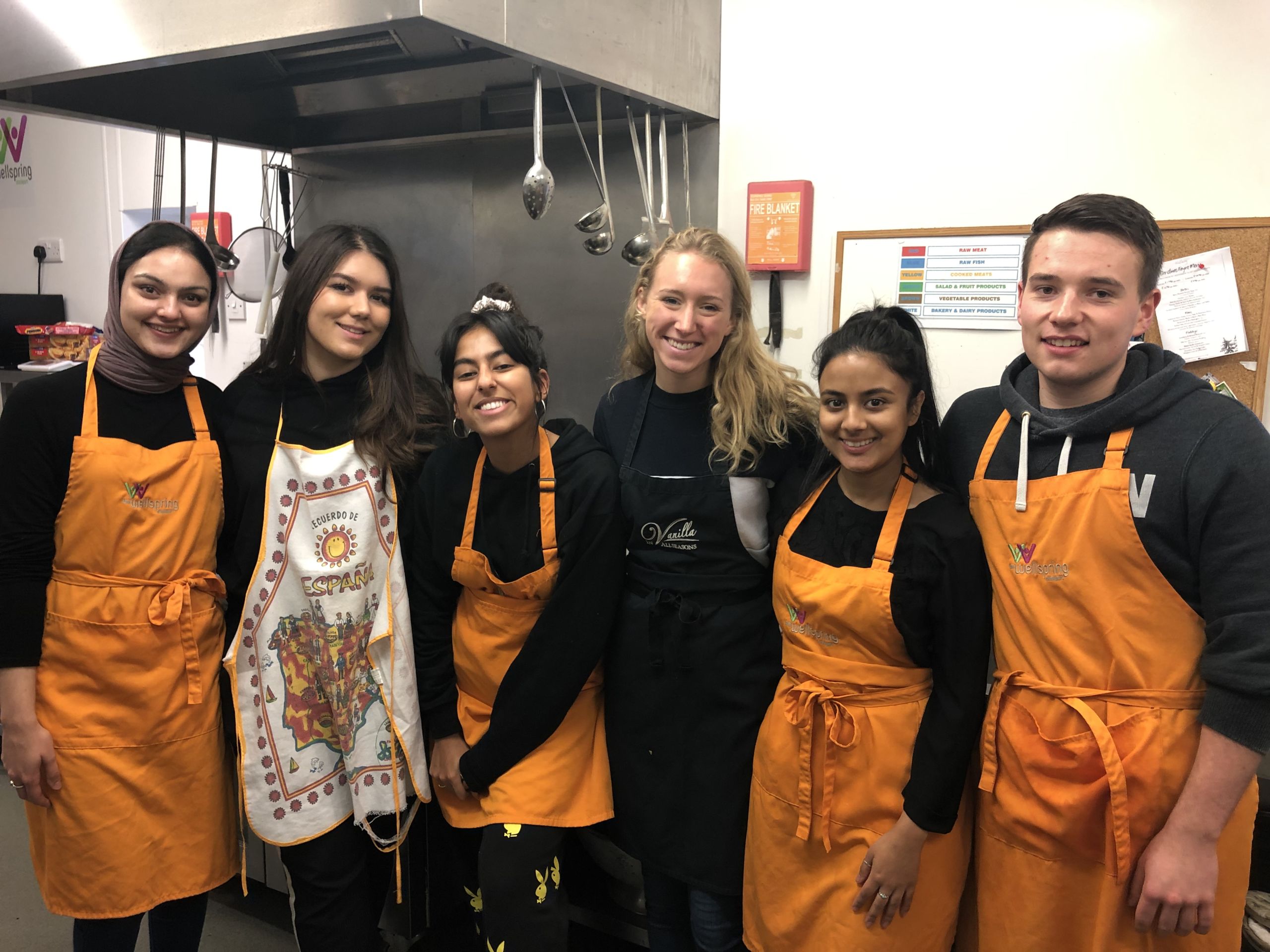
Dental health access
From their third year, dental students help to fight dental health inequalities by providing essential treatment to low income and homeless patients in our local communities as part of their training. Students also provide free treatment at the Emergency Dental Clinic on campus to around 2,000 patients a year. This addresses local community needs and allows students to develop their social skills and engage in real-life practice. In 2018, the project won the prestigious MacJannet Prize for Global Citizenship.
Helping more women survive breast cancer
Research in our Division of Cancer Sciences has revolutionised breast cancer treatment worldwide. In the 1970s, we developed a breakthrough therapy using tamoxifen, a drug that blocked oestrogen receptors in tumours, causing the cancer to grow more slowly or stop growing altogether.
Since then we developed anastrozole, which has replaced tamoxifen as the major endocrine therapy for breast cancer – a development that has benefited 1.5 million women globally. Through this and other groundbreaking research more women with early breast cancer are cured, while remission in advanced stages of the disease lasts longer.
To read more about our impact in this goal you can download our report.
Goal 4: Quality education
Ensure inclusive and equitable quality education and promote lifelong learning opportunities for all
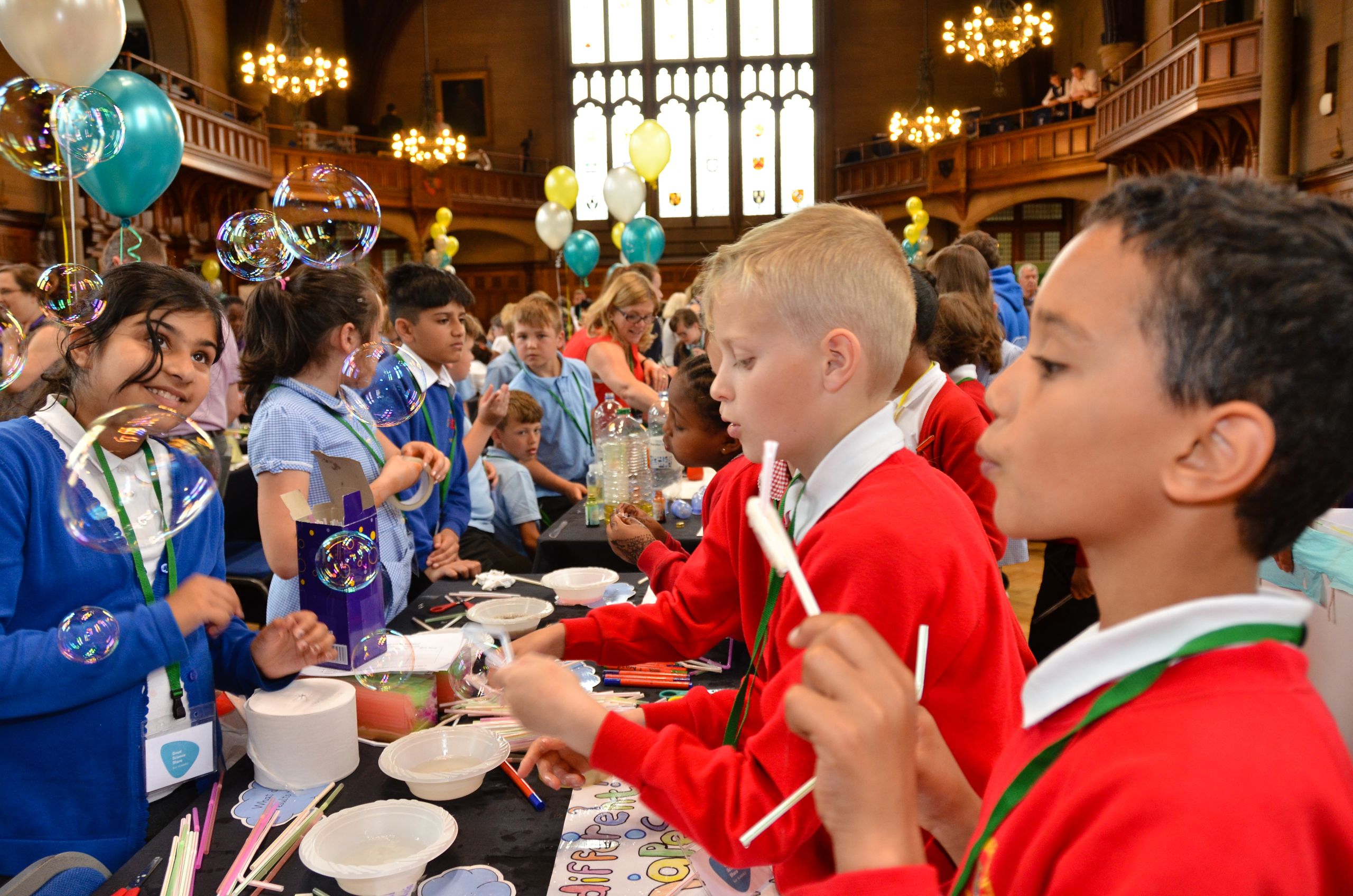
Training tomorrow’s teacher
Part of providing a first-rate education is to enable our students to go out and offer the same. Our University trains around 300 Primary and Secondary teachers every year through PGCE and School Direct courses.
All of our PGCE courses are recognised as Ofsted ‘Outstanding' and we rank consistently high for teaching quality and student satisfaction (83% in 2017/18). We also train teachers to work in disadvantaged schools through our Teach First programme.
School Governor Initiative
Our multi award-winning School Governor Initiative supports the leadership and development of local state schools and colleges by encouraging our staff and alumni to become school governors. Schools with university staff governors have received higher than average inspection ratings.
To read more about our impact in this goal you can download our report.
Goal 5: Gender equality
Achieve gender equality and empower all women and girls
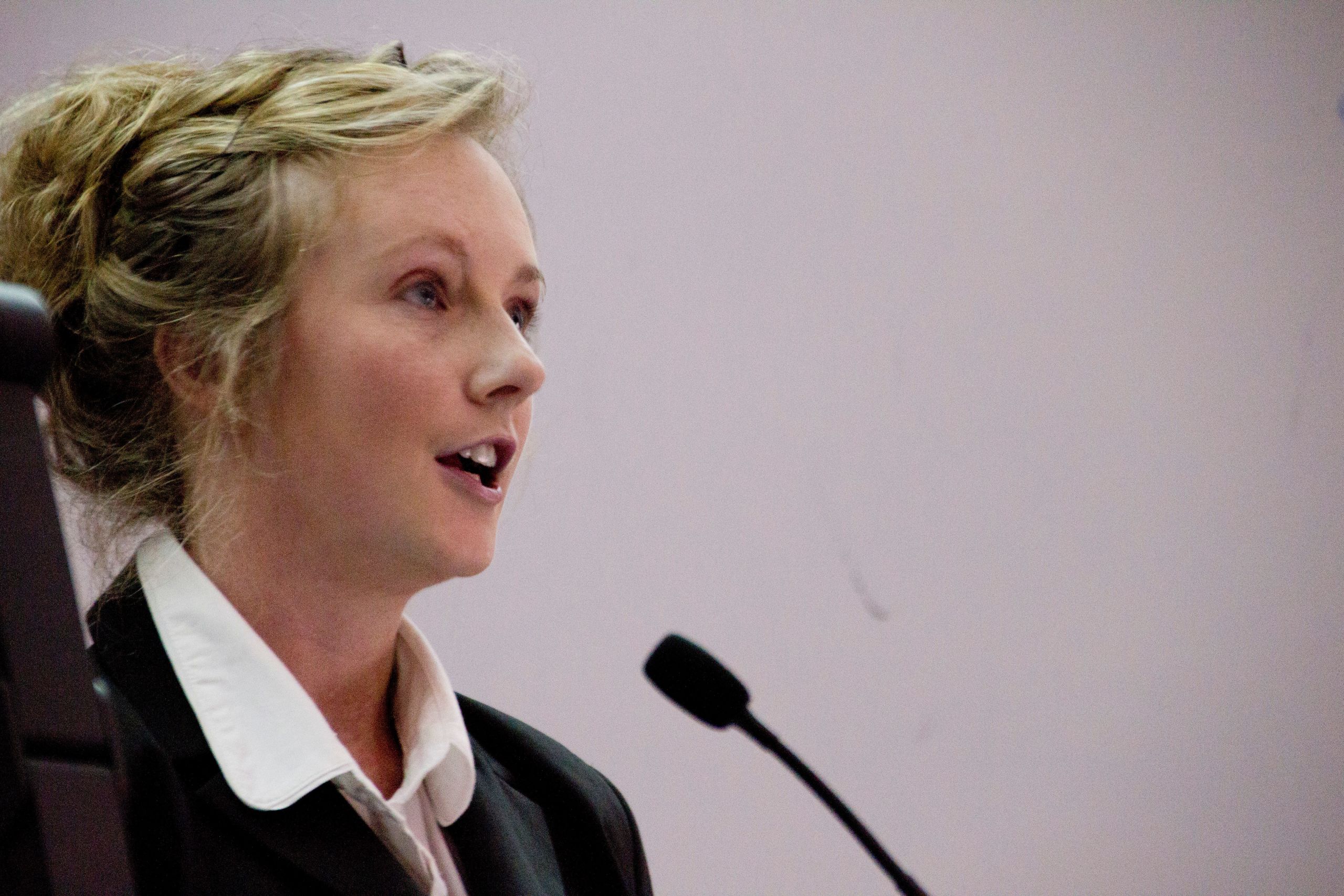
Equal pay and progression
Our 2017 gender pay gap report found an average gender pay gap of 17.1% and actions are being taken to improve this. Women in academic and professional roles are invited to the women-only leadership development programme Aurora and there has been an increase in the proportion of female senior academics from 23.2% in 2009 to 31.1% in 2017.
Women in STEMM
Since 2008, we have been a member of the Athena Swan Charter, a scheme that rewards good practice in teaching and research and promotes gender equality. All of our 15 STEMM Schools hold Athena SWAN Awards.
Fathers’ experience of shared parental leave
A perceived gender inequality in the home is the length of time new fathers take for paternity leave, and their level of involvement in the child’s day to day care. Shared parental leave (SPL) allows employed parents to choose who takes parental leave.
Our Work and Equalities Institute conducted interviews with parents about their experiences of SPL and worked with the charity Working Families and the think tank Fatherhood Institute to create video case studies and resources relating to SPL that employers and employees can access. This research has informed a key part of the government’s wider SPL campaign.
To read more about our impact in this goal you can download our report.
Goal 6: Clean water and sanitation
Ensure availability and sustainable management of water and sanitation for all

Arsenic exposure
As part of a joint India-UK water quality project, a team of our researchers carried out ground-breaking work on arsenic exposure in India. Arsenic-contaminated groundwater used for drinking and crop irrigation poses a serious health risk, and this research established the extent of arsenic exposure and how arsenic enters well water. It also confirmed that rice consumption can be a major exposure route for arsenic. This research builds upon previous University of Manchester research informing acknowledgement of rice as an arsenic exposure route by the European Food Safety Authority (EFSA) and changes in Food & Agricultural Organisation (FAO) recommendations on limits for dietary intake of inorganic arsenic.

Once a Month
The student action group Once a Month is fighting period poverty by raising awareness of how expensive sanitary products are and how this often makes them inaccessible to homeless women. The group provides sanitary products including tampons, sanitary towels, hand sanitiser and baby wipes to vulnerable women across Manchester with the help of student volunteers.
To read more about our impact in this goal you can download our report.
Goal 7: Affordable and clean energy
Ensure access to affordable, reliable, sustainable and modern energy
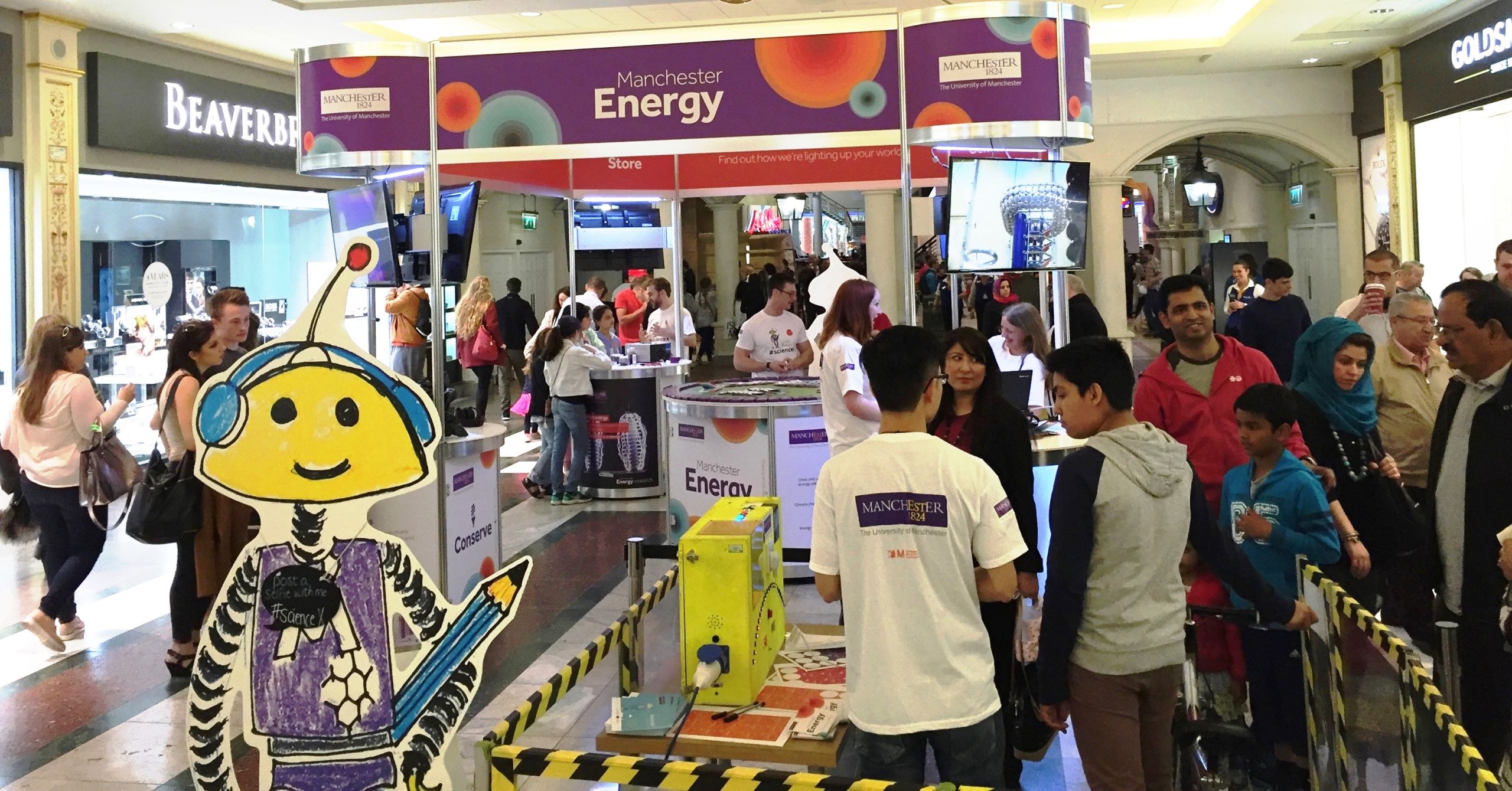
Tackling fuel poverty
UrbanChain is a university spin-off start-up company developed to reduce the cost of utility services for vulnerable households in the UK and worldwide. It is developing a blockchain platform for the energy market to enable the trading of electricity between energy producers and vulnerable households.
Energy outreach activities
Our Dalton Nuclear Institute is engaging the public on major issues associated with nuclear power, such as safety, sustainability, decommissioning and waste management. Every year they bring their knowledge and research to events such as British Science week, ScienceX, Bluedot festival and the Re-think energy conference. School children are engaged in face-to-face activities with PhD students and fun, free simulation games have been developed online to share knowledge about different forms of energy.
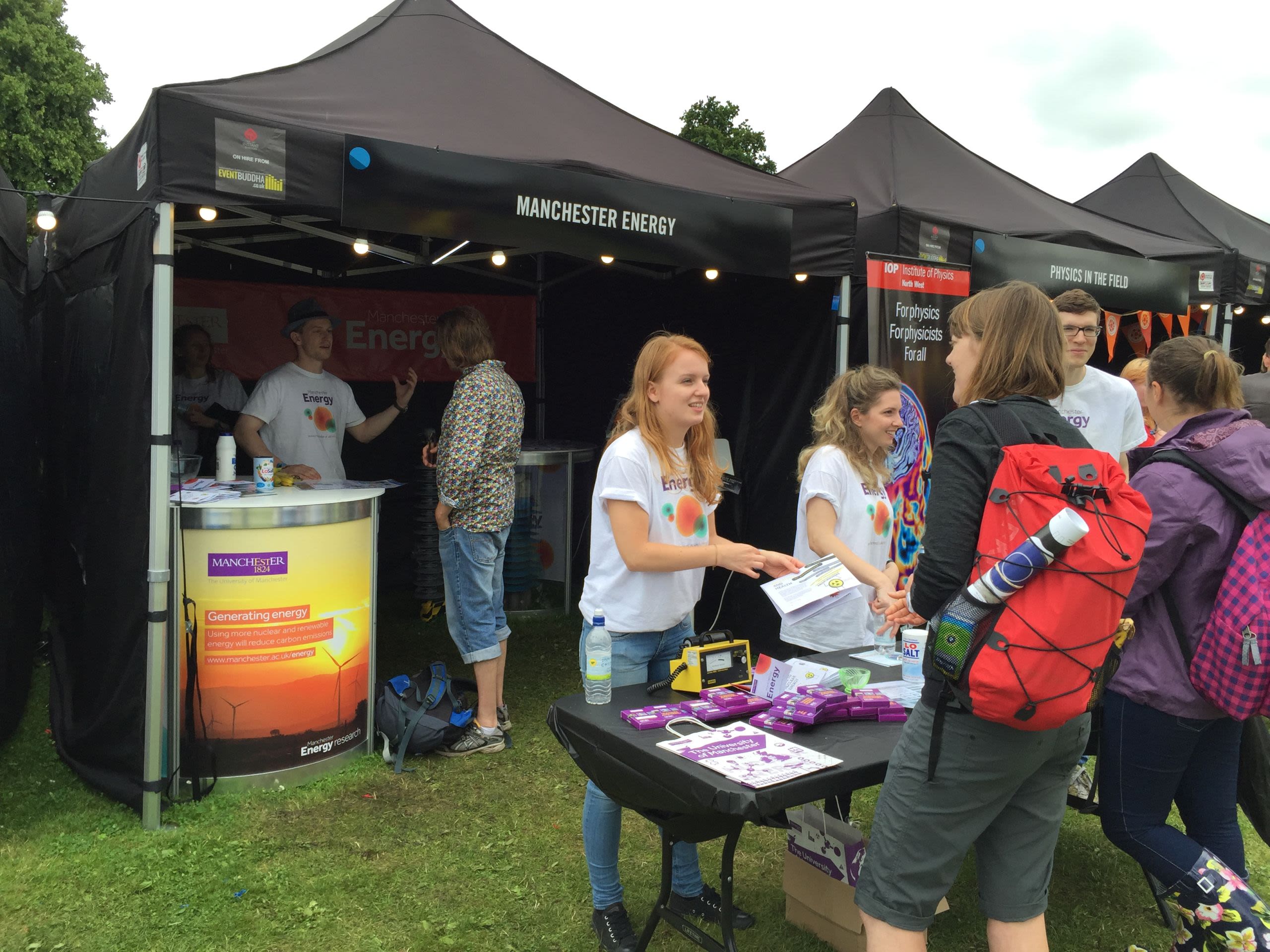
To read more about our impact in this goal you can download our report.
Goal 8: Decent work and economic growth
Promote sustained, inclusive and sustainable economic growth, full and productive employment and decent work for all
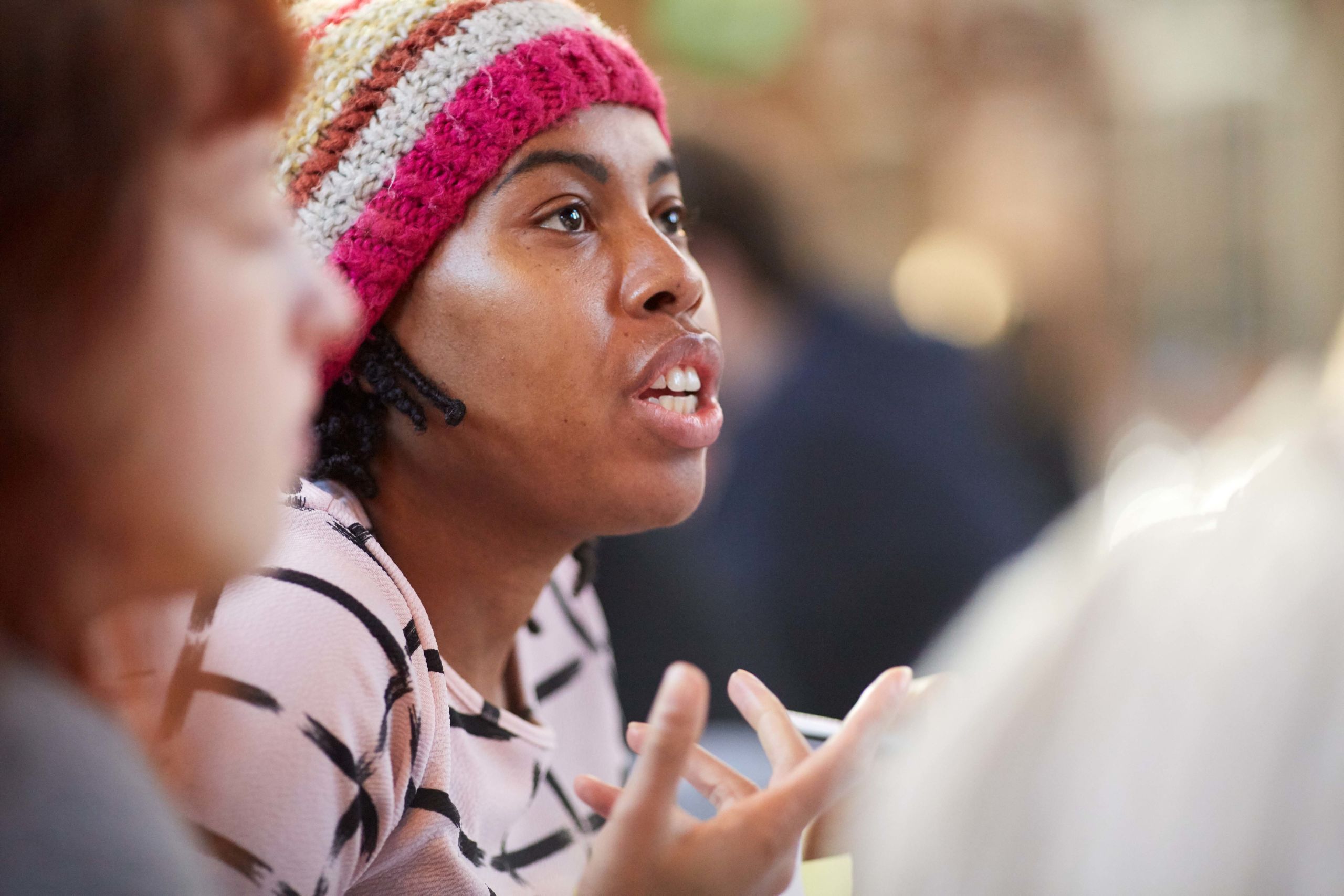
Living wage and worker’s rights
As an accredited Living Wage Employer, all of our 12,000+ staff are paid at least the voluntary living wage level in the UK set by the Living Wage Foundation. This also commits us to drive the living wage further into our supply chain. In addition, we also offer family friendly-policies and generous pensions, sick pay and annual leave allowances.
Together with our Students’ Union, we’ve affiliated to the independent, non-political Worker Rights Consortium. The organisation improves the conditions of workers in the garment industry through the monitoring of university supply chains.
Workplace Ethics Challenge
The Workplace Ethics Challenge initiative aims to empower third year students with skills and experiences that will improve their confidence and help them stand out in a crowded graduate job market.
Third year students are given the opportunity to undertake a Workplace Ethics Challenge, which prepares them to face ethical dilemmas they may encounter in the workplace. The initiative aims to empower students with skills and experiences that will improve their confidence and help them stand out in a crowded graduate job market, as well as support them to understand how they can contribute to creating inclusive, diverse and supportive workplaces
Graduate employability
Manchester is the most targeted university in the UK for top graduate employers. More than 94% of our students find employment or enter further study shortly after graduating.
To read more about our impact in this goal you can download our report.
Goal 9: Industry, innovation and infrastructure
Build resilient infrastructure, promote sustainable industrialisation and foster innovation
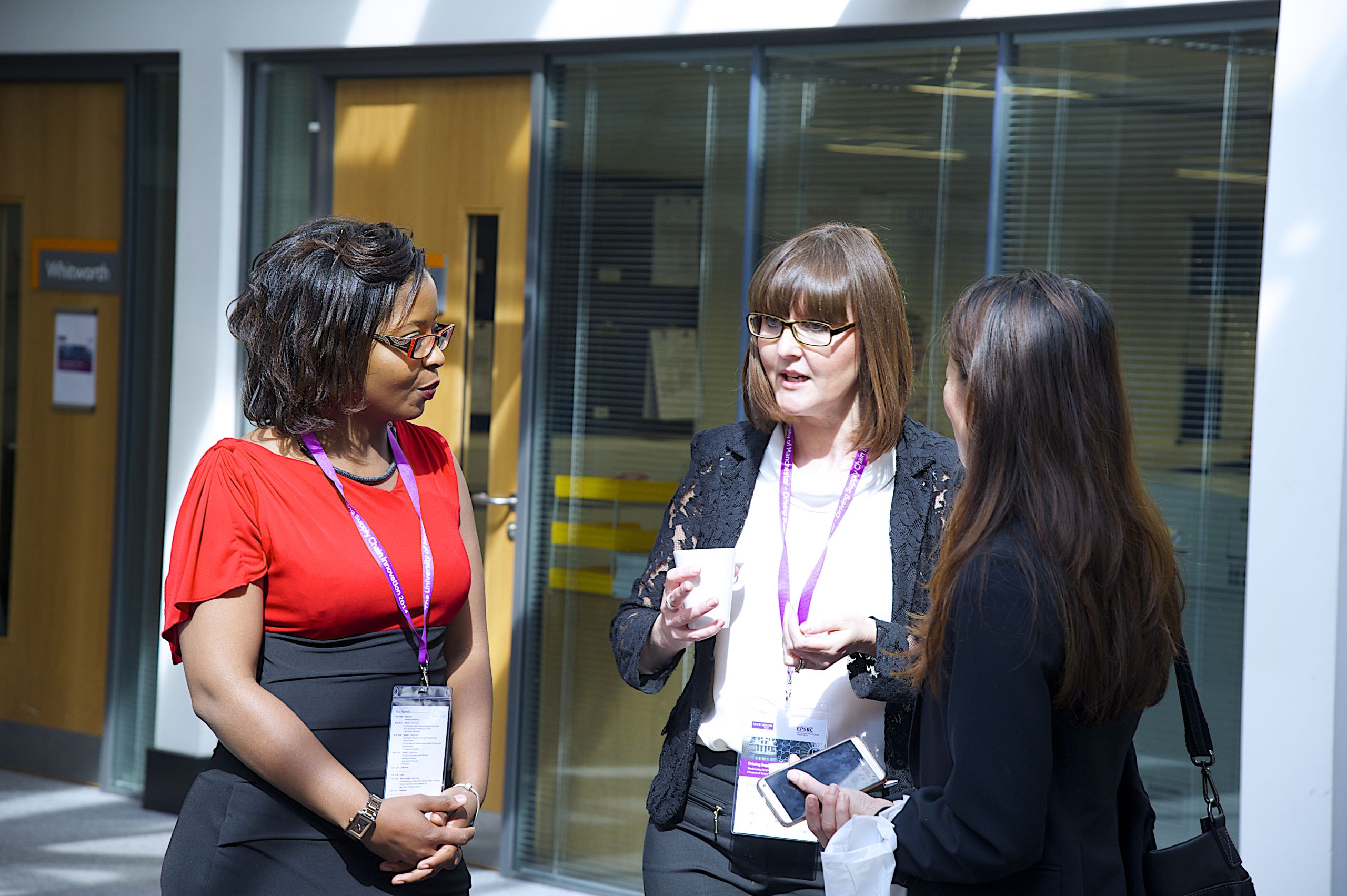
Fostering innovation
Our University of Manchester Innovation Centre Limited was founded to develop and maintain world-class infrastructure for spin-outs and spin-in ventures. It provides state-of-the-art premises for biotech and hi-tech companies and bespoke conferencing and events facilities, allowing businesses the freedom to concentrate on their core business development. We also have an intellectual property team (UMIP) that helps turn innovative ideas by the University's research base into commercial reality, thereby boosting research and development, stimulating the economy and creating jobs.
Since 2004 our commercialisation activities have contributed almost £868 million to the UK economy. Since 2014 UMIP has granted more than £150,000 to social entrepreneurs across the University who aim to improve the world and make it a better place through the Social Enterprise Ignition Fund.
Masood Enterprise Centre
Our Masood Enterprise Centre supports our students to solve problems, innovate, recognise opportunity, manage risk and apply their subject knowledge and skills to many of the SDGs.
To read more about our impact in this goal you can download our report.
Goal 10: Reduced inequality
Reduce inequality within and among countries
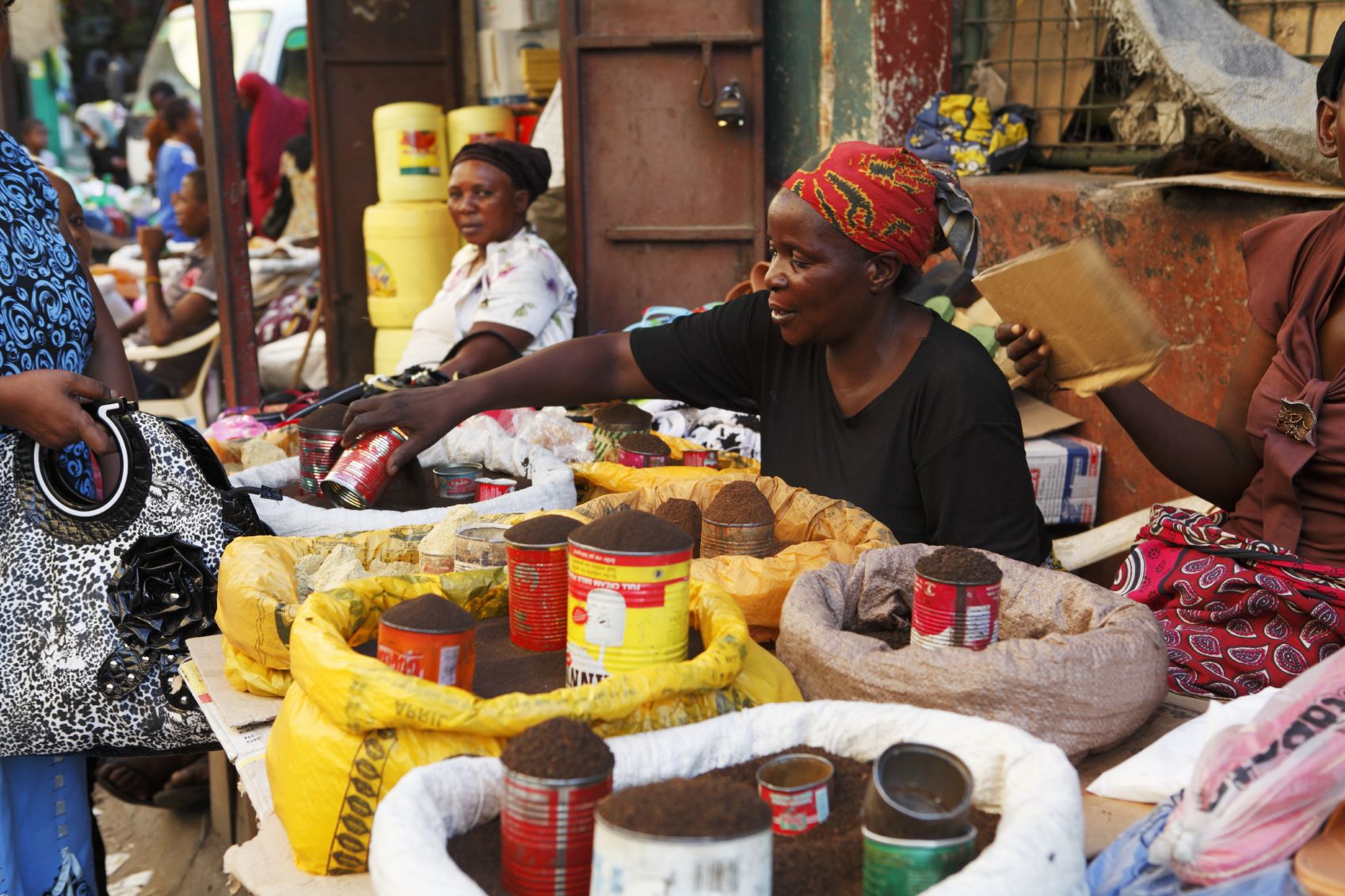
The power of direct cash transfers
Researchers at our Global Development Institute have suggested that direct cash transfers to the very poorest people in society are both financially feasible and politically sustainable. Cash transfers directly reduce income inequality and enable families to escape from extreme poverty. Our book ‘Just Give Money to the Poor ’ (Barrientos, Hulme and Hanlon) influenced the UK governments’ support for anti-poverty cash transfer programmes in sub-Saharan Africa and south Asia. Our research helped to pilot a new anti-poverty transfer programmes across all of Uganda. Also, $2 per month was pledged to all children born after the 2006 Peace Accord in Southern Sudan as a direct result of our work.
Equity and Merit
Our Equity and Merit programme helps the brightest minds from some of the least developed countries in Sub-Saharan Africa – Ethiopia, Malawi, Rwanda, Tanzania, Uganda and Zimbabwe. Since 2007, 313 students have been fully supported to study master’s programmes that contribute to the sustainable development of their countries. These scholarships are jointly funded through the University and the generosity of our donors.
To read more about our impact in this goal you can download our report.
Goal 11: Sustainable cities and communities
Make cities inclusive, safe, resilient and sustainable
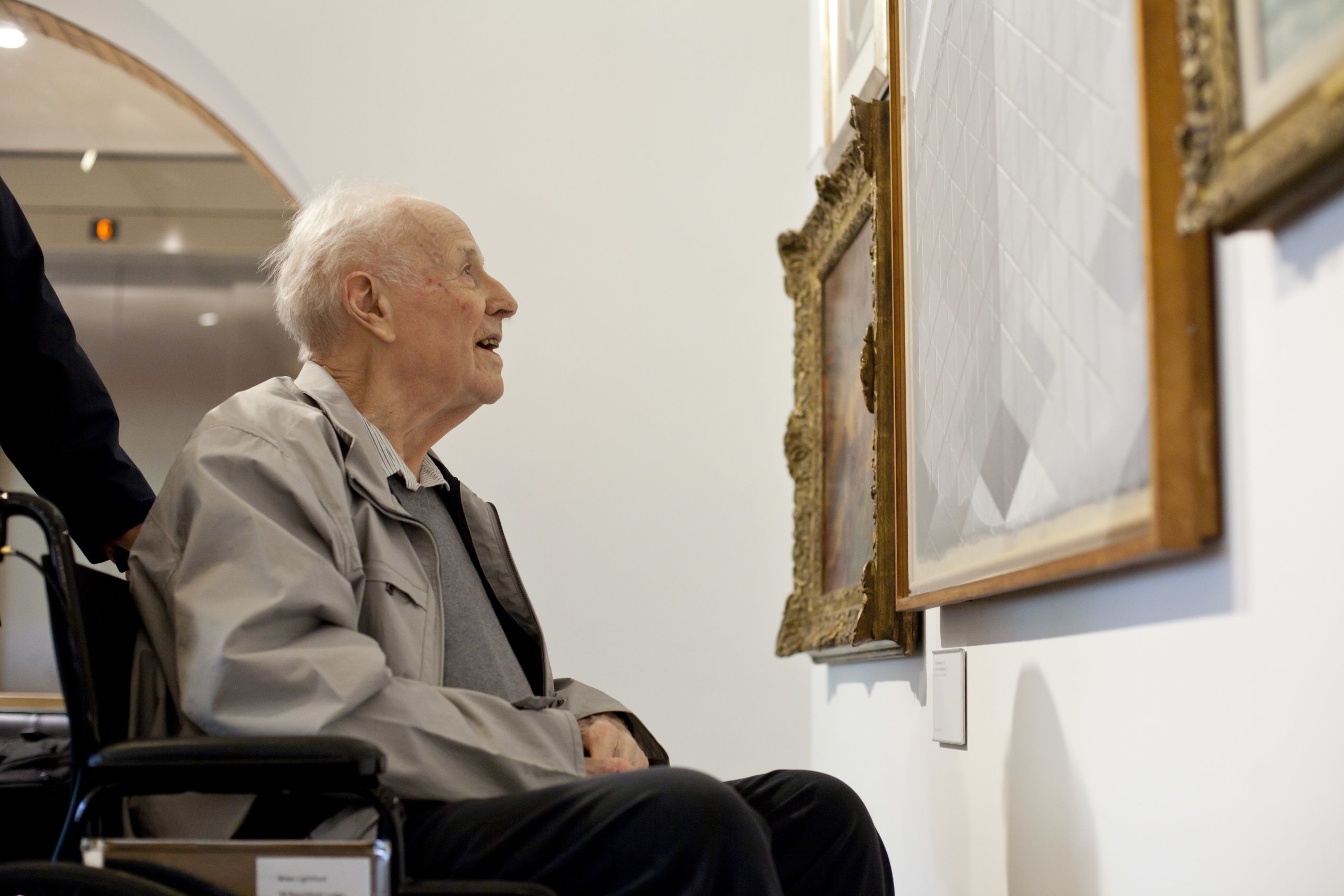
Age-friendly culture
Manchester Museum and the Whitworth are two of our University’s public-facing cultural institutions that support more sustainable communities by engaging with people of all ages across our city-region. Together with our researchers, their public engagement work has been instrumental in Manchester's status as the UK's first World Health Organisation Age-Friendly city. The Whitworth’s exhibition ‘Danger! Men at Work’ was co-curated with older male residents in a local care home. And our Manchester Museum will soon open the world's first Centre for Age Friendly Culture, to act as a beacon for the role of arts and culture in ageing well. At the other end of the age-spectrum our Whitworth gallery has organised a child-led exhibition ‘We are 11’ and puts on regular ‘Art Baby’ sessions for new-borns and their parents and grandparents.
Multilingual Manchester
Manchester is one of Europe’s most linguistically diverse cities. Our award winning Multilingual Manchester initiative connects the University – our research and our students – with the opportunities and challenges associated with local language diversity. Students and staff undertake projects with local mainstream schools, supplementary schools, hospitals, city councils and residents to map out, celebrate and engage people with language diversity.
To read more about our impact in this goal you can download our report.
Goal 12: Responsible consumption and production
Ensure sustainable consumption and production patterns

Industrial Biotechnology
Industrial biotechnology is an important source of renewable energy and is transforming the way we manufacture chemicals and materials. We offer a six-week online course which outlines the key enabling technologies that underpin biotechnology research, as well as the wider issues involved in sustainable manufacturing, such as responsible research innovation and bioethics
bluedot festival
A unique festival of discovery, bluedot invites visitors to explore a stellar programme of music, science and culture. Held at Jodrell Bank, the University’s iconic observatory, the festival works hard to minimise its environmental impact. It is free of single-use plastic, recycles the majority of waste, initiates car-sharing schemes, provides coaches for festival-goers, collects all food waste for composting and provides free water refill stations. Visitors also have the chance to offset their carbon footprint with a donation when they buy their tickets; alternative power supplies are replacing diesel generators. The festival was one of the first to use all LED festoon lighting.
To read more about our impact in this goal you can download our report.
Goal 13: Climate action
Take urgent action to combat climate change and its impacts
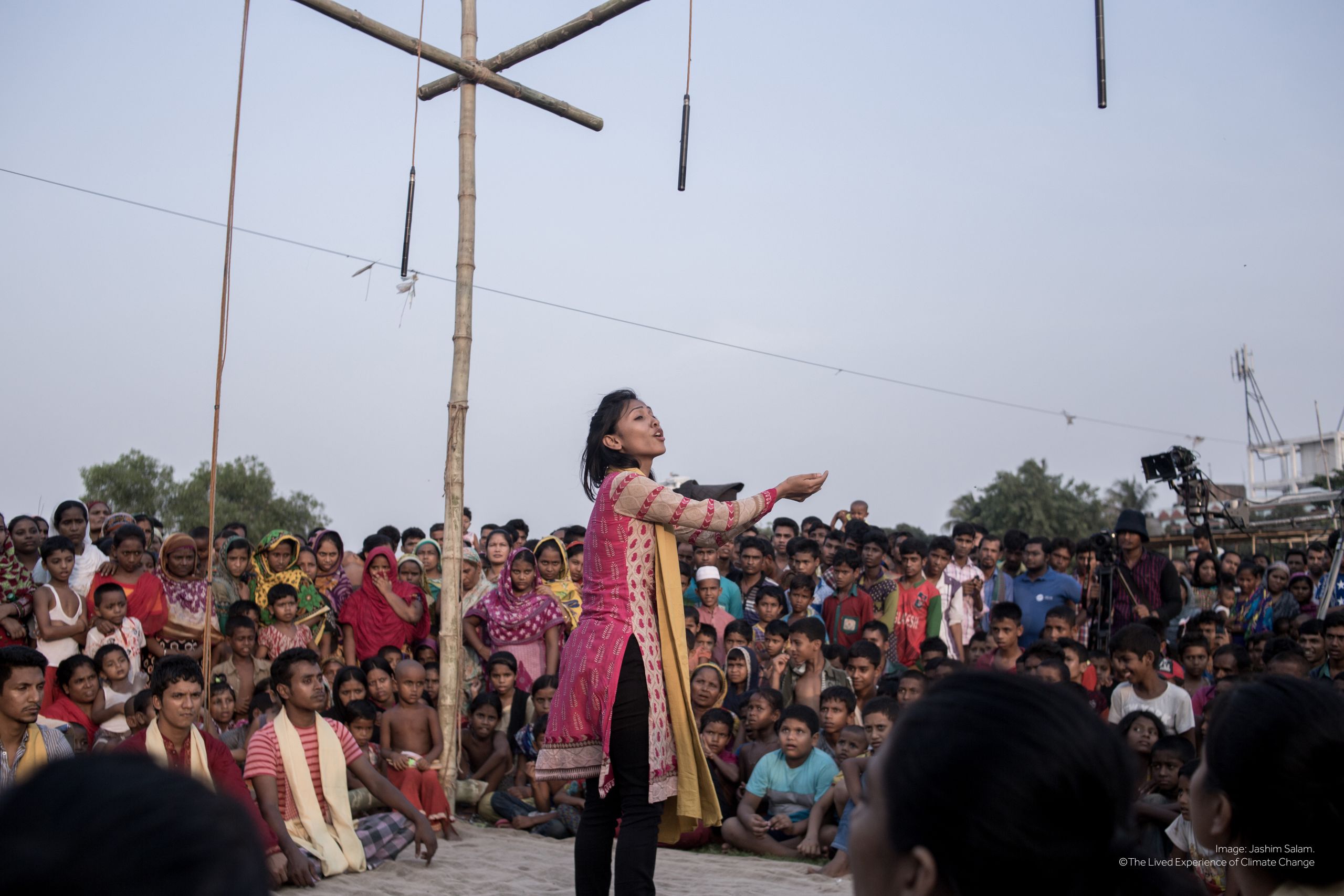
The Tyndall Centre for Climate Change Research
The Tyndall Centre is a network of universities, including The University of Manchester, that brings researchers together to develop sustainable responses to climate change. The Centre works with local, national and international leaders from the public and private sectors to promote informed decisions on mitigating and adapting to climate change.
One recent example of Tyndall Manchester’s impact has been SCATTER (Setting City Area Targets and Trajectories for Emissions Reduction) – a groundbreaking tool providing city regions with the opportunity to standardise their greenhouse gas reporting in line with the Paris Climate Agreement. This was directly adopted by Manchester City Council to set a series of ambitious new five-year carbon budgets and a commitment to becoming zero carbon by 2038.
The Lived Experience of Climate Change: A Story of One Piece of Land in Dhaka
Our School of Education, Environment and Development researcher Dr Joanne Jordan has teamed up with a diverse range of partners to raise awareness of the everyday realities and impact of climate change on the lives of low-income people in Bangladesh. Together they produced interactive theatre performances, documentary films, educational programmes and public events, which have been viewed by over 240,000 people.
Performances of The Lived Experience of Climate Change: A Story of One Piece of Land in Dhaka have been seen online and in-person by over 7,000 people, and were filmed to produce a documentary that has brought these stories from Dhaka to an even bigger audience.
To read more about our impact in this goal you can download our report.
Goal 14: Life below water
Conserve and sustainably use the oceans, seas and marine resources for sustainable development
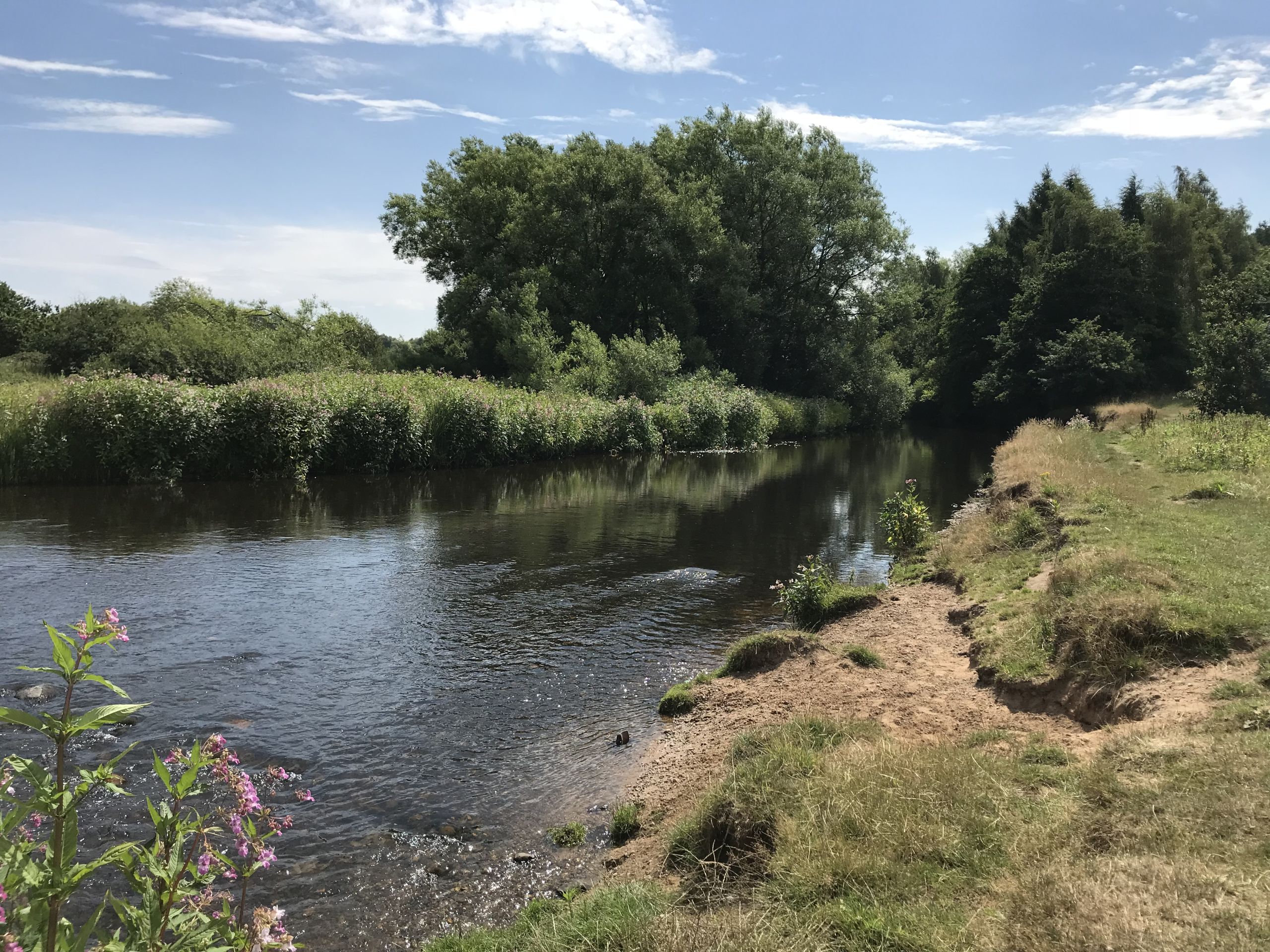
Microplastics in UK rivers
In the first study of its kind, our geographers found that UK rivers are heavily contaminated with microplastics and that microplastics from urban river channels are a major contributor to the pollution problem in oceans. Microplastics enter river systems from a variety of industrial and domestic sources. These particles pollute the environment and pose a threat to ecosystems. Our researchers surveyed river sediments from 40 sites across Greater Manchester and found that the River Tame at Denton had the highest levels of microplastics recorded anywhere in the world. This research is leading to calls for much tighter regulations on waste flowing into urban waterways.
Our commitment
We’re committed to eliminating avoidable single-use plastic by 2022. All our fish appear on the Marine Conservation Society approved list, meaning that any fish deemed at most risk of extinction are not caught to avoid overfishing. We offer discounts for staff and students who use reusable cups for hot drinks and soups in campus outlets and halls of residence. We sell only recyclable PET plastic bottles.
In 2018, 2038 reuseable mugs were used 20,074 times saving the equivalent of 388.43kg of wasted disposable cups. Our Chancellor’s Hotel avoids the waste of around 15,000 plastic bottles and 48,000 bathroom amenity bottles each year through using reusable alternatives.
To read more about our impact in this goal you can download our report.
Goal 15: Life on land
Protect, restore and promote sustainable use of terrestrial ecosystems, sustainably manage forests, combat desertification, halt and reverse land degradation, and halt biodiversity loss
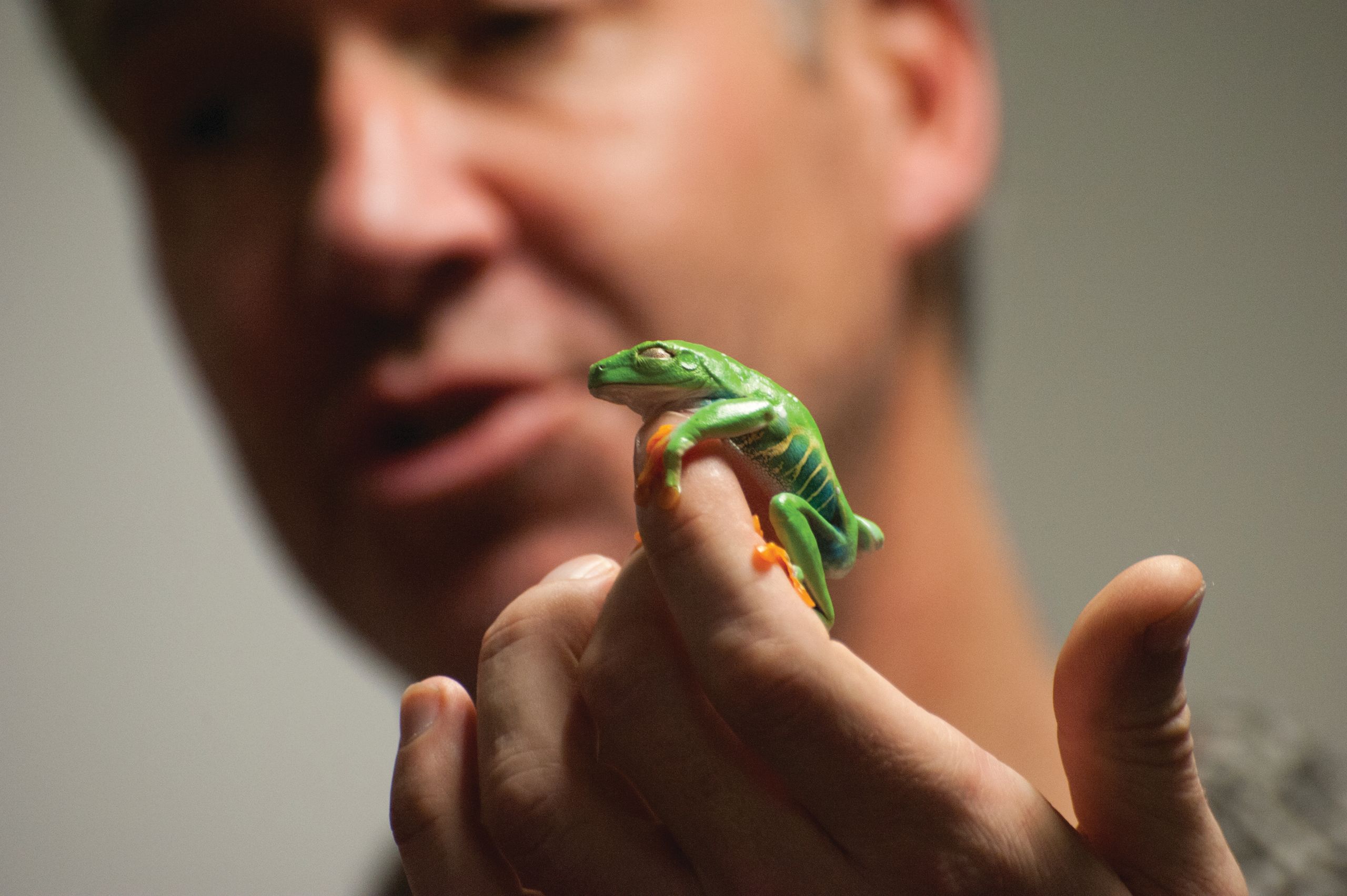
Species conservation
Our Manchester Museum Vivarium is dedicated to the conservation of reptiles and amphibians. The museum has been responsible for establishing important captive breeding programmes for some of the world’s most critically endangered species such as the Costa Rican Lemur leaf frog. It communicates to hundreds of thousands of the public and school children on issues of climate change, sustainability and natural eco-systems through our Vivarium, world-famous FrogBlog and ‘Learning with Lucy’ programme.
Cultural Park Keeper
Our Whitworth art gallery has appointed the world’s first-ever cultural park keeper. This has led to the development of an outdoor engagement programme in the surrounding park that aims to increase public awareness of the connections between art and nature and enhance awareness of trees and wildlife.
To read more about our impact in this goal you can download our report.
Goal 16: Peace, justice and strong institutions
Promote peaceful and inclusive societies for sustainable development, provide access to justice for all and build effective, accountable and inclusive institutions at all levels
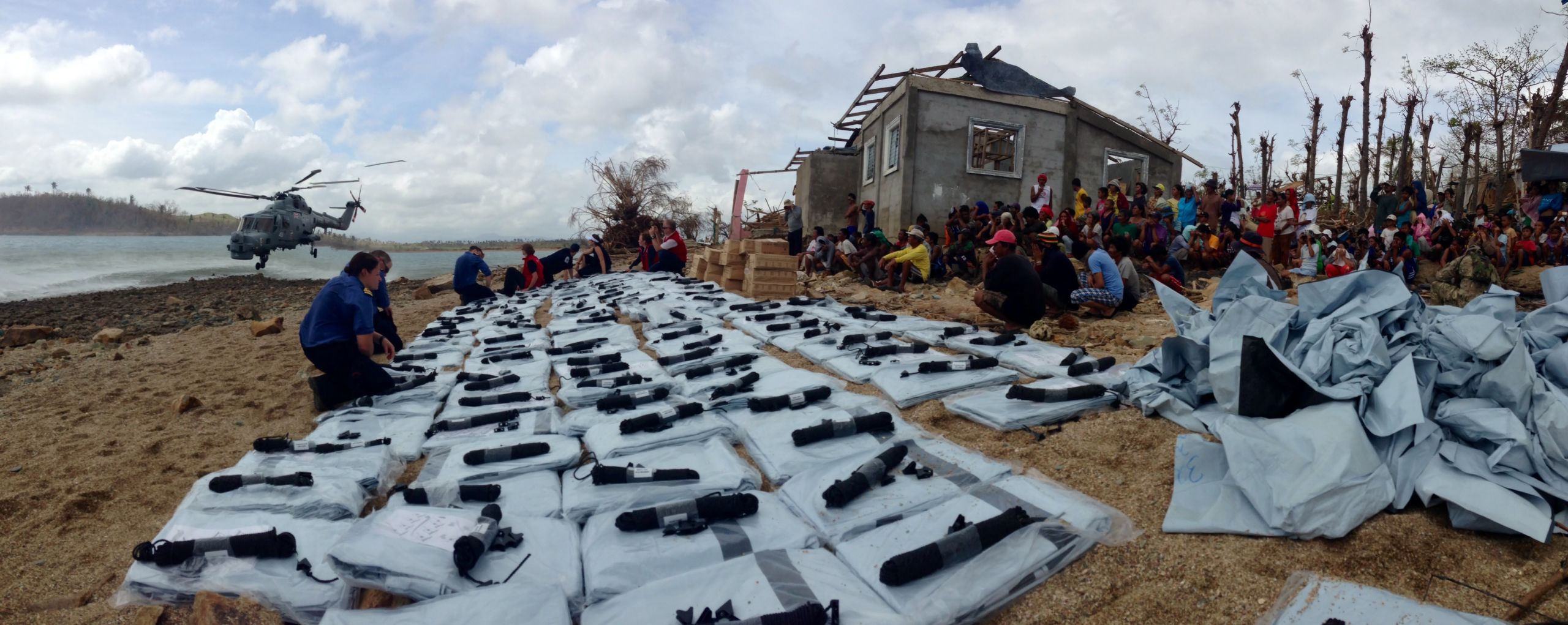
Humanitarian and Conflict Response Institute
Our Humanitarian and Conflict Response Institute (HCRI) brings together a large team specialising in peace building, conflict, security and justice. Initiatives include the Making Peacekeeping Data Work for the International Community project, which examined how the UN can better use data collected during peacekeeping missions and how wider geopolitical or justice-based interventions might prevent further challenges. For the Everyday Peace Indicators project, HCRI researchers collaborated with communities affected by war and violence to produce ‘everyday indicators’ of difficult-to-measure concepts, such as peace, reconciliation, and violent extremism.
In Place of War
Research in our School of Arts, Languages and Cultures has been used to create a spin-out charity, In Place of War, which supports artists and communities living in sites of conflict globally. For more than ten years it has connected and cultivated international networks of creative artists making theatre, street art, music, spoken word and more in response to war. The project is delivered for free to local young people in some of the most under-resourced parts of the world. The project is also working to develop four cultural spaces in areas with little access to the creative arts: Makokoba in Zimbabwe; Kisangani and Bukavu in DR Congo; and Rocinha, the largest favela in Rio de Janeiro.
To read more about our impact in this goal you can download our report.
Goal 17: Partnerships for the goals
Strengthen the means of implementation and revitalise the global partnership for sustainable development
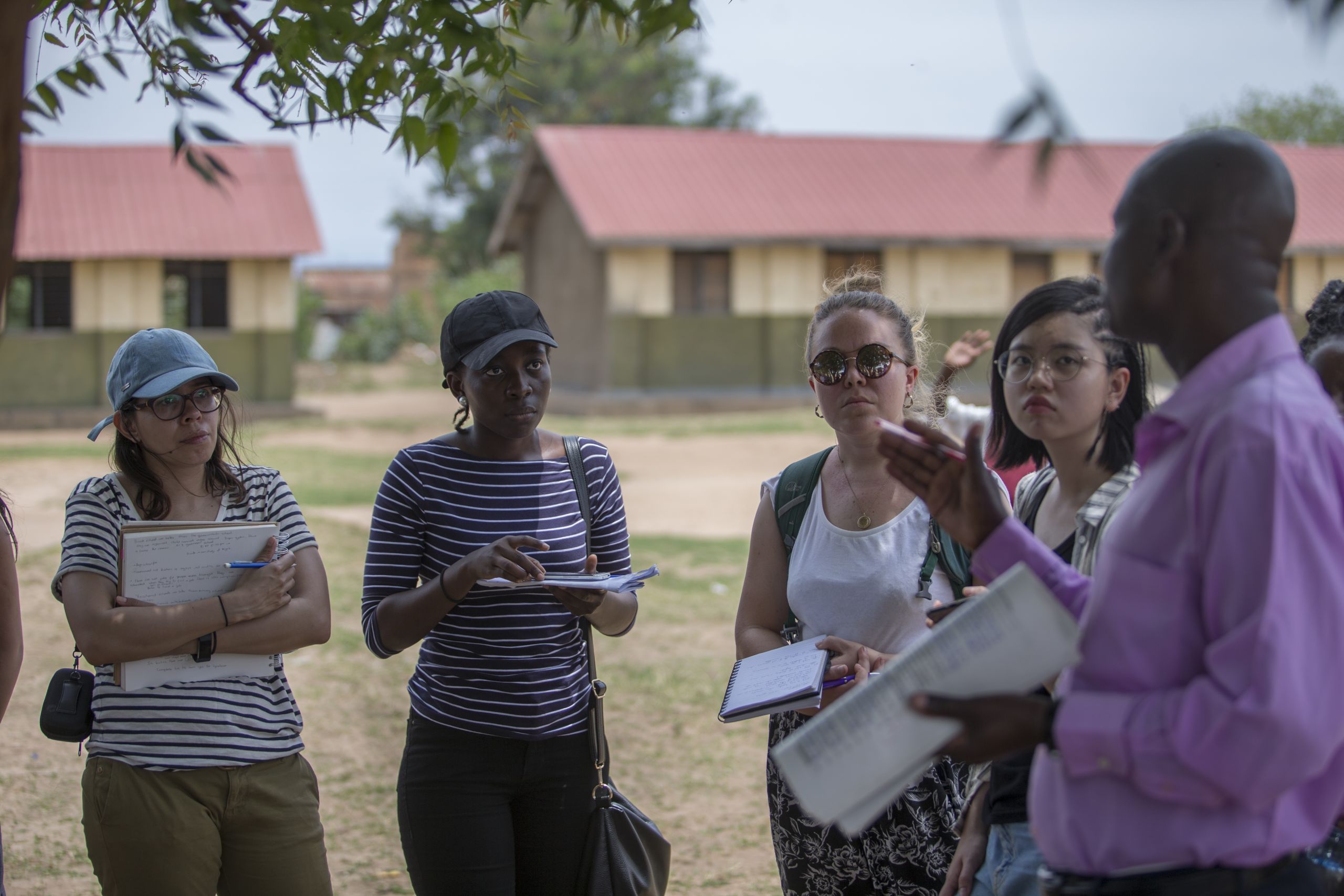
Civic and International Partnerships
Civic and international partnerships are key to the University meeting the SDGs.
Examples of our partnerships include working with:
• Manchester City Council on education, planning and the environment;
• Greater Manchester Combined Authority to address skills development, the environment, clean and sustainable growth, and catering for an ageing population;
• Greater Manchester Health and Social Care Partnership to drive pioneering research into new tests and treatments in the areas of musculoskeletal disease, hearing health, respiratory disease, dermatology and cancer;
• Greater Manchester Local Enterprise Partnership to deliver growth, jobs and prosperity for the area.
Medical Aid Register
Humanitarian responses to international disasters can have unforeseen negative consequences. It’s thought that they led to needless amputations during the 2010 Haiti earthquake aid response due to low medical standards. To address this, our Humanitarian and Conflict Response Institute created the UK Emergency Medical Team, which acts as the UK’s interface between the NHS and other professional volunteers and local aid providers. It lists health and other specialists, trains them for work in difficult working environments, and then makes them available to NGOs or state responses, most recently responding to the diphtheria outbreak in Bangladesh.
To read more about our impact in this goal you can download our report.
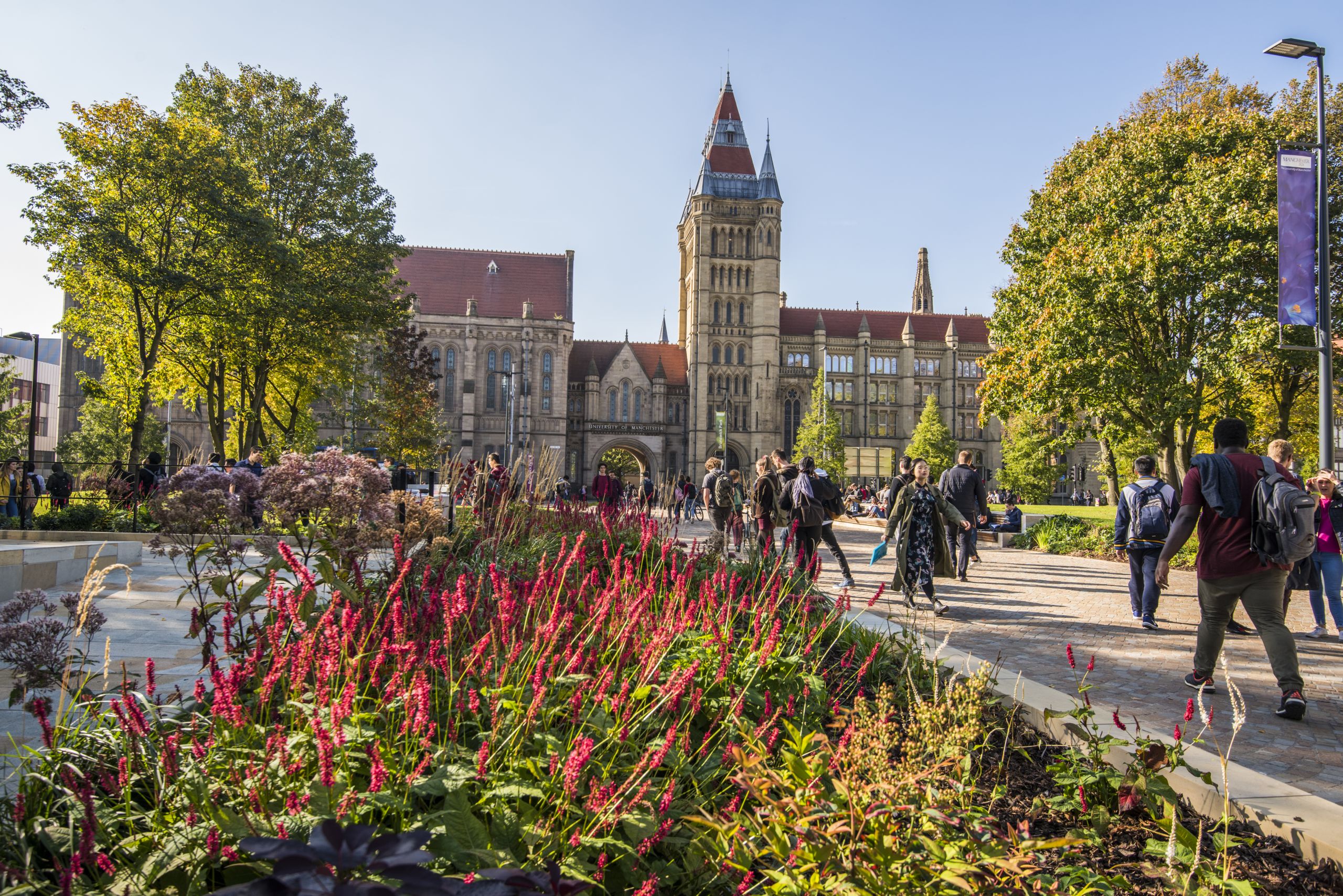
Contribution mapping
As one of Europe’s largest research universities, with a unique commitment to social responsibility, we undertake work against all 17 SDGs. Our contribution is particularly significant in some areas and a key learning point in producing this report was understanding and visualising where these were.
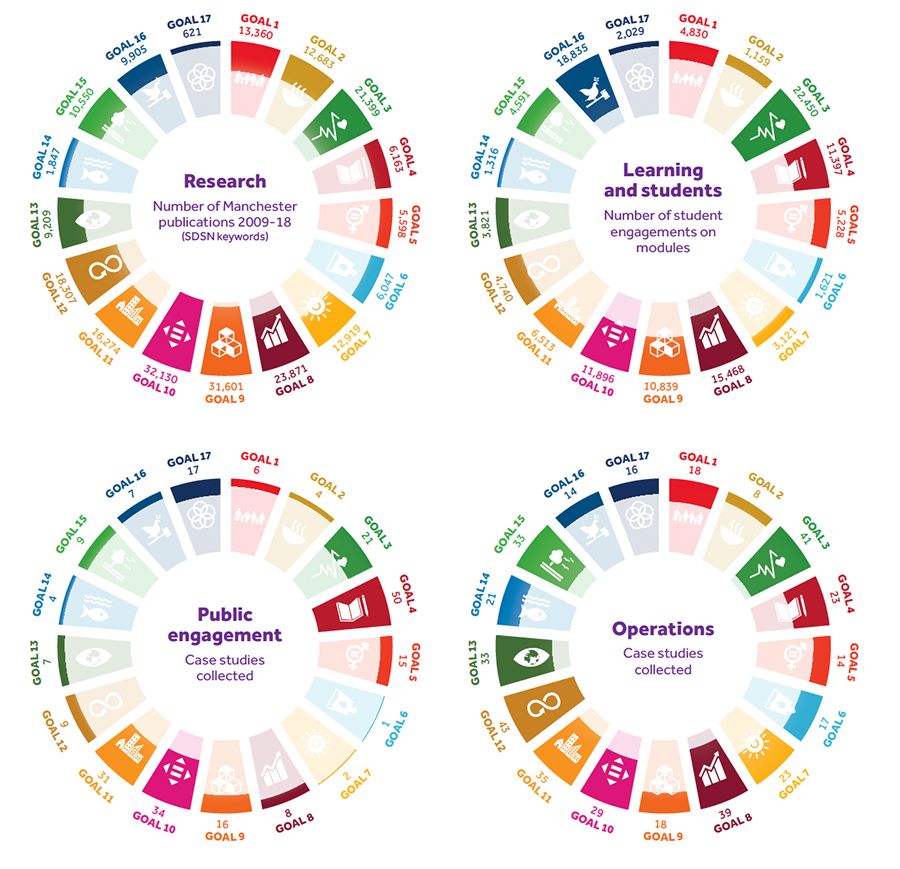
University rankings for the SDGs

The contribution of universities to the UN’s Sustainable Development Goals (SDGs) can be assessed in a variety of ways, as evidenced in this report. Times Higher Education measure and rank universities in their University Impact Rankings. Noting the methodological and philosophical challenges and limitations of all rankings, The University of Manchester’s performance was still among the highest in the world. We were ranked:
1st in the UK overall
1st in Europe overall
1st in the world overall
1st in world for SDG11: Sustainable cities and communities
1st in world for SDG12: Responsible consumption and production
2nd in the world for SDG14: Life below water
What next?
Our report is part of a much wider aim to play a full part in meeting the SDGs. Here’s what else we’re doing.
University Strategy: as part of our University strategy we are embedding our work to address the SDGs as a key theme.
Leadership and communications: we will use our role as a pioneer of social responsibility among universities to raise awareness of the role of higher education in addressing the SDGs through publications, videos, conferences, exhibitions and events.
Cultural engagement: our University’s Manchester Museum, the Whitworth gallery, Jodrell Bank Discovery Centre and John Rylands Research Institute and Library engage with 1.3 million members of the public each year. We will use these civic spaces to engage the public in understanding and addressing the SDGs.
University College for Interdisciplinary Learning SDG Module: we are pioneering the development of a fully online, interdisciplinary credit-bearing module Creating a Sustainable World: 21st Century Challenges and the Sustainable Development Goals that will be open to all our undergraduate students.
Research, teaching, engagement and processes: we are working with our staff and students to foster greater internal awareness of the SDGs and ensure that contributions by our community are visible to all.
Alumni engagement: we have more than 500,000 alumni in more than 190 countries. We will engage these valuable members of our community to understand and take action against the SDGs.
Global University Rankings: we will promote awareness of the SDGs in higher education by participating in global measures of performance such the Times Higher Education University Impact Rankings and influencing their development.
Ethical Grand Challenges: this programme opens up opportunities for students to address the SDGs through Sustainability, Social Justice and Workplace Ethics challenges open to all 27,500 undergraduate students. The SDGs are being embedded into this programme.
10,000 Actions: our 10,000 Actions platform gamifies positive environmental and social action and is open to all 12,695 of our staff. We are now linking these actions to the relevant SDGs and plan to expand its scope to include our students.
Engage with us
We want this report to stimulate conversations and collaborations. Whether you’re in the UK or overseas, the public or private sector, work for an NGO, in policy or in education, we’d welcome feedback and ideas for how we can play our full role in tackling the world’s greatest challenges by 2030.
www.manchester.ac.uk/SDGs To find out more and access a digital version of this report
socialresponsibility@manchester.ac.uk
+44 (0) 161 306 3044
